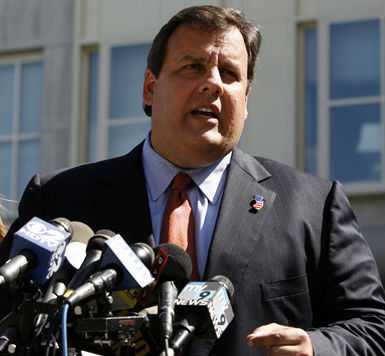New Jersey Gov. Chris Christie announced this summer that another round of pension reforms would be coming to the state, and he all but promised that benefit cuts would be part of the deal.
But details have been sparse since then. It was thought Christie might use his “State of the State” speech to unveil a few more details about what’s coming down the pension reform pipeline.
But his address offered few specifics.
From NJ.com:
In his fifth State of the State address Tuesday, Gov. Chris Christie called the state’s struggling pension system “an insatiable beast.”
But despite rumors swirling the past week that he might use the platform to unveil a massive pension overhaul based on the recommendations from his pension commission, Christie offered little on how he intended to tame it.
The governor, who spoke at length about drug treatment and a Camden turnaround, dedicated roughly 10 percent of his remarks to the pension system without delivering any solutions.
“This is not just a New Jersey problem. This is a national problem,” he said. “A long-term solution and sustainable future for our pension and health benefit plans are difficult but worthy things to achieve.”
While crediting his 2011 reforms with saving the taxpayers more than $120 billion over the next three decades, Christie said pensions remain one of New Jersey’s “largest and most immediate” obligations.
“But the fact that is that while we have been making up ground, the pension fund is underfunded because of poor decisions by governors and legislatures of both parties over decades, not years,” he said. “These sins of the past have made the system unaffordable. But we do not have the luxury to ignore this problem.”
[…]
“Think of it this way, in order to close the current shortfall in just the pension system alone, every family in New Jersey would have to write a check for $12,000,” he said. “That is the nature of long-term entitlements which grow faster than the economy, and in that regard our problem here in New Jersey is not that different from Washington’s entitlement problem.”
Over the summer, Christie put together a panel to review the state’s pension system and offer recommendations for reform. But the committee has been silent for months, although Christie said they are “hard at work”.
Photo By Walter Burns [CC BY 2.0 (http://creativecommons.org/licenses/by/2.0)], via Wikimedia Commons





